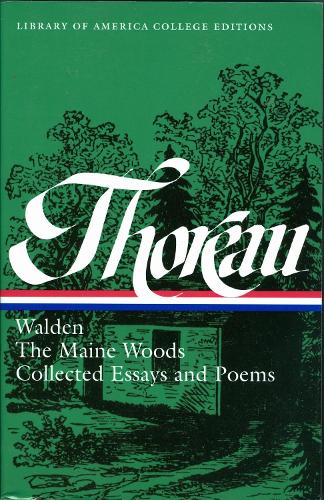
Henry David Thoreau: Walden, The Maine Woods, Collected Essays and Poems: A Library of America College Edition
(Paperback)
Publishing Details
Henry David Thoreau: Walden, The Maine Woods, Collected Essays and Poems: A Library of America College Edition
By (Author) Robert F. Sayre
Edited by Elizabeth Hall Witherell
The Library of America
The Library of America
1st June 2007
United States
Classifications
General
Non Fiction
810
Physical Properties
Paperback
1264
Width 130mm, Height 196mm, Spine 46mm
1075g
Description
Here, in one volume for the first time, are the most important works of Henry David Thoreau, America's greatest nature writer and a political thinker of worldwide influence. A landmark in American literature, Walden is at once a personal declaration of independence, a social experiment, a manual of self-reliance, and a masterpiece of style. The Maine Woods combines close observation of the unexplored Maine wilderness with a far-sighted plea for conservation. Including "Civil Disobedience," "Walking," and "Life Without Principle," the 27 essays gathered here reflect Thoreau's speculative and probing cast of mind. In his poems, presented here in versions from his journals and manuscripts, Thoreau gave voice to his private sentiments and spiritual aspirations in the plain style of New England speech.
Author Bio
Henry David Thoreau was born in Concord, Massachusetts in 1817. He graduated from Harvard in 1837, the same year he began his lifelong Journal. Inspired by Ralph Waldo Emerson, Thoreau became a key member of the Transcendentalist movement that included Margaret Fuller and Bronson Alcott. The Transcendentalists' faith in nature was tested by Thoreau between 1845 and 1847 when he lived for twenty-six months in a homemade hut at Walden Pond. While living at Walden, Thoreau worked on the two books published during his lifetime- Walden (1854) and A Week on the Concord and Merrimack Rivers (1849). Several of his other works, including The Maine Woods, Cape Cod, and Excursions, were published posthumously. Thoreau died in Concord, at the age of forty-four, in 1862.
